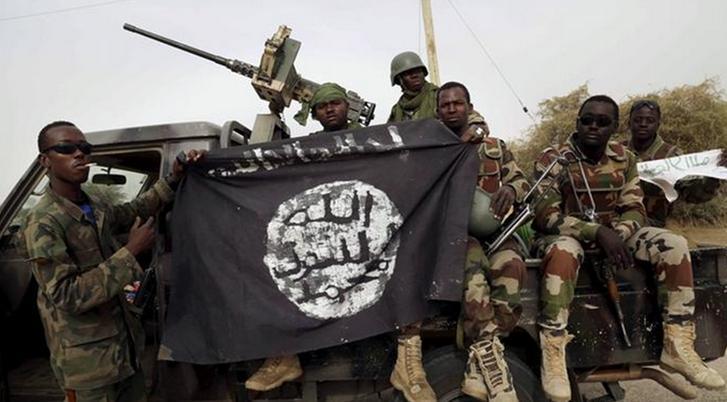
Why Boko Haram is Losing Ground in Nigeria
The insecurity of the Western Sahel and its immediate periphery has seemed to extend unrelenting in recent years. In Nigeria, jihadist terrorism is causing violence on a tremendous scale, even as regional countries try to create a counter-terrorism policy and deploy increasing numbers of security forces.
Deadly Games: Jihadist Schism in Nigeria
Since the conception of Boko Haram in the mid-1990s, the group has been gaining ground and influence across the northern part of Nigeria, inflicting a wide number of violent actions against the state and society, and heavy repression on those who fall under its rule or refuse to join its ranks.
The eruption of the Islamic State’s regional franchise, the Islamic State West Africa Province (ISWAP), and the splintering with Boko Haram, has posed a serious obstacle to the objectives and strategies of the latter, producing a fierce rivalry—based more on personal differences than ideological ones, or a conflict of group interests. As ISWAP took the offensive, Boko Haram struggled for survival and sustenance, with its traditional tactics of kidnapping for ransom and so on hindered by its jihadist rival. The contest concluded in May 2021 with the death of Boko Haram’s charismatic leader, Abubakar Shekau, who immolated himself rather than fall into the hands of ISWAP.
The figure of Shekau had been decisive for the Boko Haram movement. Under his command, the group managed to launch an unprecedented Islamist insurgency and carried out some of the most infamous incidents, such as the kidnapping in 2014 of more than 200 students from a school in the city of Chibok, in the state of Borno, and the abduction of more than 300 girls in Katsina state in 2020. While Boko Haram has always been a group trying to survive, ISWAP has found it relatively easier, growing relentlessly under the umbrella of Islamic State’s central command. With Shekau’s death and the disarray of his faction, ISWAP was able to further consolidate control of the northeastern part of the country and the Lake Chad basin.
Boko Haram’s Capabilities After the Death of Shekau
Since Shekau’s demise, Boko Haram’s power has been on the decline, what some specialists have referred to as the “beginning of the end” for its very existence. Its projection of strength, which saw it as the top-ranking terrorist group in 2020 as measured by the number of attacks, is slipping: it was relegated to fourth place in the 2021 comparison.
As well as being eclipsed by ISWAP, the Boko Haram movement’s resilience has faltered under the counterterrorist operations of the Nigerian security forces, especially in Borno state, where Boko Haram has traditionally exercised an unprecedented level of power. Since 2020, the state counterterrorism forces have pushed Boko Haram away from its previous heartlands and led it into cooperation with other types of criminal networks in the area to survive. An example of this occurred in early 2021, when a number of armed men broke into a school in Zamfara state, in the northwest of the country, and abducted nearly 300 girls studying there. Although no one claimed responsibility for the kidnapping, the modus operandi was similar to that of Boko Haram, although it occurred in an environment quite far from its area of influence. It is therefore believed that the terrorist group may have used criminal gangs to perpetrate the kidnapping and sell the hostages: Boko Haram would not only gain money from this, but it would secure notoriety—and apparent show of life—by claiming attacks that it probably did not commit. This strategic partnership results in a win-win situation between criminal networks and jihadists, a dangerous symbiosis with uncertain consequences.
Overall, the trendline points towards Boko Haram being at a turning point. Shekau, having been a symbol for many of the organization’s militants and a reference point for authority after he abandoned the directives of Islamic State’s central command, is gone. Finding a replacement with the same degree of charisma and organizational skill to hold the movement together will be difficult. Boko Haram’s strength has been compromised, perhaps fatally, by ISWAP, which holds greater economic and human resources for its cause. Still, the remnants of Boko Haram are not—as some believed they would—defecting en masse to ISWAP. On the contrary, Boko Haram is fiercely resisting the absorption of its members by the Islamic State’s local wilayat. There are also signs that Boko Haram remains able to exert power: some of its militants have engaged in violence against the security forces and the Nigerian civilian population since Shekau’s death, and it is quite possible that Boko Haram was behind the killing of ISWAP’s emir, Abu Musab al-Barnawi, a few months after Shekau was killed.
All in all, Boko Haram is entering a phase of introspection. The group might find a way of recalculating its tactics to deal with the loss of its leader and the reduction of its revenue streams, or it might wither under the dual campaign of ISWAP trying to poach its members and the Nigerian state offering paths to demobilization as it seeks to find some stability in an uncertain security situation.
Source: eeradicalization





